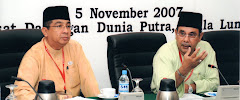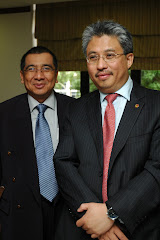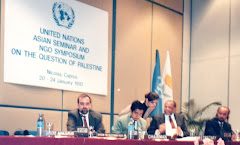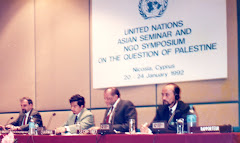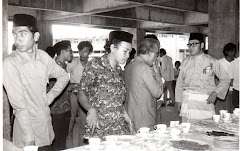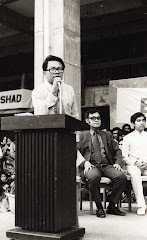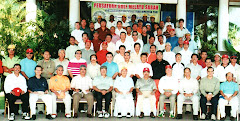Education is for all, it’s time we think of the bigger picture affecting all children.
MY colleague received a press statement sent by a very high-ranking official of a government department recently. It was personally written in English by the official and sent by WhatsApp to ensure it was speedily delivered.
The only snag was that his command of the language was so horrendous that my colleague had to suggest to him, politely, that he might want to stick to Bahasa Malaysia to ensure accurate reporting on our part. He got the message. A new version was eventually sent.
Then, there are also the vice-chancellors of a few public universities who face the same language problem despite having spent much time in overseas universities to pursue their post-graduate studies.
We have also met Malaysian diplomats who cannot carry out a proper conversation in flawless English and we know some of them even shy away from social functions, which is a shame as this where they can pick up nuggets of information for their intelligence reports.
A few generations, yes, a few generations, are paying the price – unable to speak and write in proper English – because of our education system.
At best, they may have some semblance of communication English, but without the proper foundations in grammar, many are unable to even string a sentence together correctly.
Because English is just a subject, there is hardly any opportunity to use and practise the language on a regular and extensive basis within the school system.
That’s how low we have sunk. Forget about the occasional use of some Latin words to make the language more refined, if not, more classy. Getting through the basics is tough enough.
It is no surprise, therefore, that they really struggle when they reach tertiary level where much of the information is in English.
And even upon graduation, many employers are reluctant to hire them when they cannot function properly in an environment where the working language is English.
Controversial MP Datuk Bung Mokhtar became the butt of every joke on social media when he introduced a hashtag #earthquack for his postings on the earthquake situation in his home state.
Well, we also can see that some of our Chinese politicians, from both sides of the political divide, struggle with English, judging by some of the postings they make on Facebook.
Every now and then, we have reports about bad English in an English examination paper. We have more or less gotten used to the fact that the English in many of our official websites are littered with mistakes.
It doesn’t seem to bother our politicians and decision makers one bit, as they will simply shrug off calls to allow English as a medium of instruction in our education system.
Why should they be worried as many of them are able to send off their children to boarding schools overseas at a young age? After all, the only ones that would bear the consequences would be the students in the rural areas.
The Ruler of Johor, Sultan Ibrahim Ibni Almarhum Sultan Iskandar, recently suggested that English be made a medium of instruction – he didn’t say make English THE medium of instruction.
The reality is that English, as a medium of instruction, is already available but it is restricted only to private and international schools, mostly in urban areas.
And despite the high fees charged, more urban parents are opting to send their children to such schools because they simply want their children to be proficient in this international language.
The urban-rural divide is accentuated because while children in the rural areas are sometimes teased for using English, it is perfectly normal for English to be used at home in middle-class Malaysia.
And with greater exposure to the language, the urban children do have an edge over those in the rural areas.
But it doesn’t have to be this way. As his Royal Highness the Sultan of Johor said, these politicians are using nationalism and race to champion communal rights and the Malay language at the expense of the English language.
They are doing so to protect their interests and political positions. Unfortunately, many seem to buy into their agendas.
We must also be clear that the lack of proficiency in English cuts across all races.
Many Chinese parents send their children to Chinese schools at the primary level because they want their children to be able to speak and write basic Chinese as they eye the growing economic power of China.
Many shy away from the national schools because there is a strong perception that these schools have turned more religious in character with a single race dominant in the overall attendance.
The national schools that many of us from my generation and earlier grew up in, where English was the medium of instruction, were different as all races were well represented.
But in our current situation, many Chinese parents also find that sending their children to the Chinese primary schools does not help their children have a good command of English either.
The English proficiency of the majority of Chinese teenagers, because of their background in Chinese schools, is just as bad as their counterparts in the rural schools.
They live in the Chinese world, watching Taiwanese and Hong Kong movies, with little interest in the real world.
Their worldview is shaped pretty one-dimensionally and because of the environment they grew up in, they are unlikely to have real friends from those of other races.
Many of us in our 50s have been lucky – we were probably the last batch of the English-medium schools where we sat for the Malaysia Certificate of Education (MCE) and the Higher School Certificate (HSC) examinations.
The English-medium schools were neutral grounds as students of all races attended such schools and the best friendships were forged there.
We had real friends from all races because we were growing up together for at least 10 years in the schools. It was not functional friendship at work, but real bonding as we studied and played together.
I feel really sorry for many Malaysian kids who do not have friends outside their own race as they are not be able to shape their thinking in a more open way.
So, when a hot issue comes up in the country, especially those involving race and religion, they are not able to see things from another perspective.
Like many, I also worry about the future of Malaysia and our children, as the performance of our schools continues to falter. Beyond our concerns over language skills, we should be even more worried about the quality of our education.
Our ranking in Science and Mathematics is already reportedly low, although our politicians question its accuracy. But the reality is that many of us are no longer surprised by such trends.
Our politicians will continue to tell us that all is well and fine in our schools, and that we have little influence to change anything. Some of us may believe that to be so.
But if we really care for the country, we should not be afraid to propose radical changes for the sake of our future generations.
Education is for all and it is totally selfish if we only think of our own interests while the majority are stuck in a system which does not empower them to reach for the stars.

































